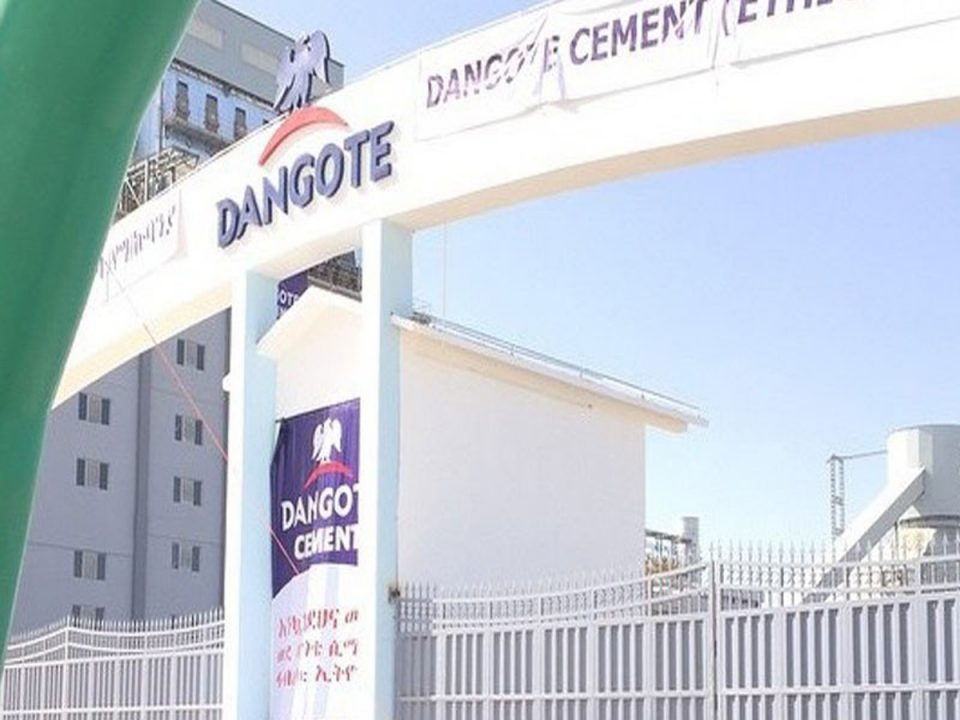The President of Dangote Group, Aliko Dangote, has said Dangote Cement sustained 54,000 jobs in four African countries, including Nigeria, Ethiopia, Senegal and South Africa, despite the challenging economic situation in 2019.
Dangote, who addressed shareholders at the company’s 11th annual general meeting in Lagos State, said more jobs would be created as the company intensified export of clinker to neighbouring countries.
The entrepreneur was quoted in a statement as saying, “According to our 2019 socio-economic impact assessment study specifically on our operations in Nigeria, Ethiopia, Senegal and South Africa, we sustained 54,005 jobs (direct, indirect, induced) in these four markets in the year under review.”
He told shareholders that 2019 was a strong year, given the “tough” business environment across most of its operating geographies, saying the group recorded 23.7 million metric tonnes in volume and N891.7bn in revenue.
Dangote said, “We recorded a strong EBITDA margin of 44.3 per cent. As a result of this performance, the board has recommended for your approval a dividend of N16 per ordinary 50k share.”
Speaking on the local Nigerian operations, he said, “Nigeria’s cement market grew slightly in 2019. We estimate that total market consumption was up between two to three per cent on the 20.7MT estimated in 2018.”
Dangote explained that the modest performance was in spite of the negative impact disruptions, on account of the 2019 election cycle, heavy rains and the loss in land export volumes due to the border closure, on the market.
Sunday PUNCH reports that the Governor of the Central Bank of Nigeria, Godwin Emefiele, expressed excitement over the progress made at the Dangote Refinery and Petrochemical plant.
70% vessels suffer 40-day delay at ports, expert laments
The Chief Operating Operation of a pan-African logistics firm, Lori Systems, Uche Ogboi, has said 70 per cent of vessels at Nigerian ports suffer delays of over 40 days as a result of the cumulative COVID-19 lockdown in the country since March.
Ogboi spoke on Thursday, during a webinar agribusiness organised by the Africa CEO Forum, in partnership with the African Export-Import Bank.
The logistics expert stated that the $25,000 daily cost of the vessels at the ports, which amounts to a total of over $1m per vessel, was passed on to the consumers.
She said, “The lockdown caused a significant increase in cost. If we start all the way from the vessels in Nigeria, 70 per cent of vessels were delayed by more than 40 days. So, even though the imports did increase, there were massive delays.
“Now, what happens when the vessels need to pay $25,000 per day? Who is that cost passed on to? It’s passed on to the consumer. So, we’ve seen transportation costs go up. The delays on the borders in East Africa caused transit times to move from 24 hours to even up to three weeks as we saw two weeks ago.
“All of these are being passed on to the transportation costs, which is as high as 50-75 per cent of the cost of the goods.”
While noting that the rising cost of importation in agribusiness would ultimately make a case for local sourcing, she argued that the local market was not ready.
Ogboi added, “Is the local market ready? If the local market was ready, then it could have made a case for it. But, given that it wasn’t ready, the question is, once these lockdowns start to ease, will those costs persist?”
She also bemoaned the impact of the lockdown on interstate transportation of agricultural products.
The Lori Systems COO said, “For us, with regard to COVID, I think the challenge to our business is more as a result of lockdowns. That has impacted us significantly.
“There has been a lockdown on interstate movement. Of course, they’ve allowed essential goods, but it is difficult for the people to get to work.
“Even when the trucks are moving, there are delays at the border. At the ports, half of the staff are not available. When you want to load or offload your trucks, they are delayed.”
The logistics expert noted that the biggest hurdle for local sourcing in agribusiness was poor infrastructure and advised the Federal Government to fix the roads.




